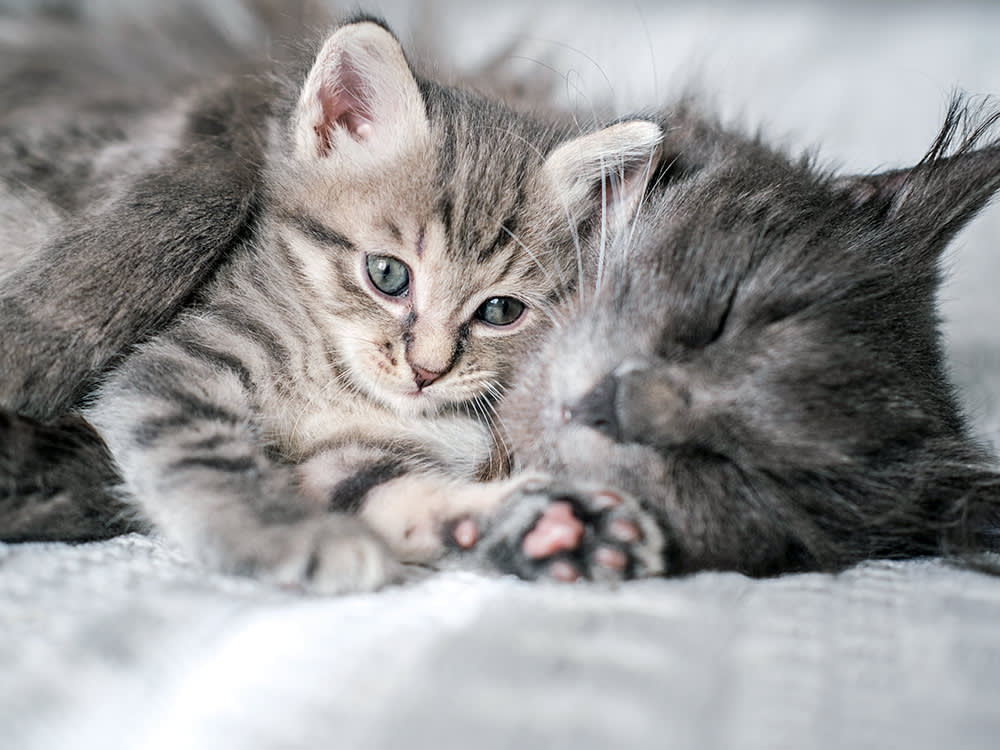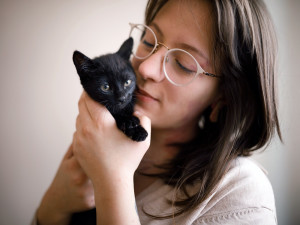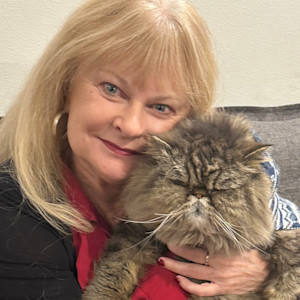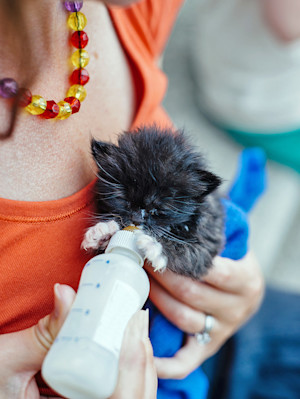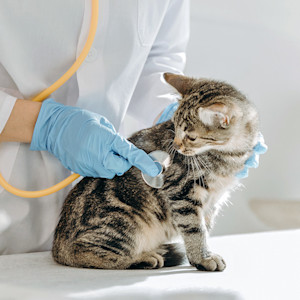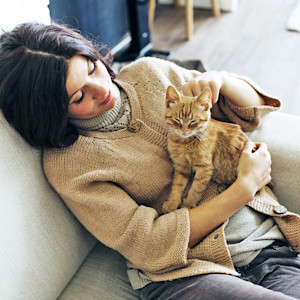How Long Do Kittens Nurse?
When can you wean them off milk and onto solid food? Read on to learn about kitten development.
In This Article:
Understanding Kitten Nursing The Typical Nursing Timeline When Do Kittens Typically Stop Nursing? The Weaning Process
Everyone loves kittens. They are especially precious to look at when they are curled up next to their mother’s belly, nursing contentedly. Here, kittens are not only getting nutrition but also warmth, a strengthened immune system, and emotional security.
Nutrition is obviously essential, but warmth is also necessary. If kittens get too cold, they will not survive. In addition, the antibodies in their mother’s first milk (the colostrum) strengthen their immune systems to fight disease. The nursing period doesn’t need to — and can’t — last forever, but caregivers must understand the stages of nursing and know when kittens can be weaned off their mother’s milk and move on to solid food.
How much do you spend on your pet per year?
Understanding kitten nursing
What is kitten nursing?
Newborn kittens know immediately what nursing is, as soon as minutes after their birth. It is an instinctive behavior without which they could not survive. Nursing is the act of kittens suckling milk from their mother’s mammary glands. This milk contains everything a kitten needs to survive in the early stages. It contains fats, vitamins, carbohydrates, proteins, and antibodies.
The first milk, called colostrum, is particularly rich in antibodies. Orphaned kittens who don’t receive colostrum will not have their immune systems as boosted as kittens who have the opportunity to nurse from their mothers. These antibodies are essential in helping kittens stay healthy as they fight disease. The milk obtained from the mother during the first few weeks also comes with all the necessary fluids and calories, encouraging normal digestion and growth. Warmth, comfort, and bonding are other perks of the nursing process.
How long do kittens typically nurse?
A typical nursing period for kittens is six to eight weeks, although some will continue to nurse intermittently for up to 10 weeks. If a kitten continues to live with their mother, they may even try to nurse for far longer than that. But if this continues for several months, it is unhealthy and should be discouraged. Growing, older kittens require the nutrients that are found in cat food to thrive. Orphaned kittens fed by bottle may need longer than other kittens because weaning depends on their gradual developmental process.
Usually, kittens can start being offered solid food around four weeks of age. The weaning process is generally completed by eight to 10 weeks, but it is a gradual ending rather than an abrupt one. Typically, the mother cat naturally reduces nursing sessions as her kittens become more independent.
The typical nursing timeline
Kittens develop rapidly. Below, you’ll learn what typically happens at each stage of growth.
Birth to two weeks
Kittens are born blind, deaf, and totally dependent on their mothers. Fortunately, their instincts lead them to search for a nipple, and they will usually nurse within an hour.
Feeding frequency: Every one to two hours, day and night — yes, if you’re bottle-feedingopens in new tab, you have to get up every two hours.
Nutrition: During this period, they will live exclusively on their mother’s milk, which is high in calories and rich in antibodies.
Behavior: At this age, kittens primarily sleep, nurse, and barely move around.
Growth: It’s essential to monitor kittens' growth. By the end of week two, they should be twice the size they were at birth.
Kittens do not urinate or defecate on their own at this age. The mother cat has to stimulate urination and defecation by licking a kitten’s genital areas. If you’re caring for an orphaned kitten, you have to do the same with a warm, damp cloth after each feeding.
Two to four weeks
At this stage, kittens still depend entirely on nursing for their complete nutrition, but they will start to open their eyes and appear more alert. This marks the beginning of their transition to independence.
Feeding frequency: They need to “eat” every two to three hours.
Behavior: The kittens begin to take a more active part in receiving milk from their mother. They begin kneading the mother’s belly to stimulate milk flow.
Development: It may seem very early, but their first baby teethopens in new tab start to come in around week three.
Growth: Kittens grow quickly. They should triple or quadruple their birth weight by the end of week three.
At this age, kittens still can’t eat solid food, but they will begin a bit of exploring outside their beds for brief periods.
Four to six weeks
Finally, the kittens reach the point where they will try solid foodopens in new tab, while still nursing.
Feeding: They’re still nursing, but also sampling solid foods with their new teeth.
Diet introduction: Start by mixing a bit of wet kitten food with kitten milk replacer. Create a gruel of this, and offer it to them. If a kitten won’t try the gruel, put their front paws in the gruel, and they will likely lick it off. That gets many reluctant kittens started in eating solid food.
Behavior: At this point, they will start entertaining you with frequent play, developing coordination and social skills.
Weaning: The mother continues to limit nursing sessions, gently encouraging independence.
By six weeks, kittens will eat small amounts of softened food several times a day, while still nursing occasionally.
Six to eight weeks
By this age, kittens are lively, adventurous, and relatively independent when it comes to food. Milk remains a comfort, but not a necessity.
Feeding: Give them three to four small meals of kitten food daily.
Nursing: This will be minimal, with some kittens occasionally nursing.
Mother’s role: By this point, the kittens will be independent and spend less time with their mother.
Health: By eight weeks, kittens are typically fully weaned and ready for their first vaccinationsopens in new tab and deworming. It is essential to get them to the vet for their vaccines because the antibodies from the colostrum will be wearing off.
At eight weeks, they can eat wet or dry kitten food and drink water confidently — nursing ends naturally as solid food takes over.
When do kittens typically stop nursing?
There is some variation in when kittens stop nursing. Most tend to stop between six and eight weeks. Some go a little longer if they are still with their mothers. That’s not harmful if they are eating enough solid food and growing well. Orphaned kittens being bottle-fed should follow the same schedule by their caregivers. Prolonged exclusive nursing can delay normal socialization and independence. By eight to 10 weeks, kittens should be fully weaned.
The weaning process
Weaning is the transition from nursing with the mother to eating solid cat food. This is a critical time and should not be delayed, because that can interfere with future eating habits and digestive health. Usually, the mother will gradually encourage the kittens to stop nursing. If you’re caring for an orphaned kitten, you will need to decrease the number of bottle feedings slowly and offer solid food.
Signs a kitten is ready to wean
Most kittens start to show readiness between three-and-a-half and four weeks of age. Watch for these signs:
Exploring the mother’s food and water bowls
Biting the mother’s nipples while nursing
Trying to ingest liquids from a bowl
Development of small, sharp teeth
Longer periods between nursing sessions
If you see these signs, start introducing a gruel made by blending wet kitten food with kitten-milk replacer. Make sure the dish is shallow, and place a bit on the kitten’s lips or nose. If that doesn’t work, put their front paws in it. As they become more interested in the gruel, thicken it over several weeks until they no longer need the milk replacer.
Potential issues during weaning
Although weaning goes fine most of the time, as with anything else, problems can occur. Common challenges include the following.
Digestive upset: Diarrhea or constipation can occur. Monitor this daily.
Reluctance to eat solids: Continue with bottle feedings or nursing until things improve.
Nutrition: Never feed anything to kittens except kitten formulas or high-protein kitten diets.
Behavioral or separation stress: Don’t separate kittens from their mother or littermates too soon. Keep them together throughout the eight-week weaning period.
Maternal discomfort: Usually, the decreased demand for a mother’s milk leads to a gradual reduction in the milk produced. However, the mother’s glands can become engorged and have mastitis: red, swollen, painful glands that need a vet’s care.
For bottle-fed kittens, reduce milk feedings gradually and encourage self-feeding.
Bottom line
Kittens begin life entirely dependent on their mother for nutrition, warmth, and immune protection. Most kittens stop nursing between six and eight weeks. Whether you’re a foster caregiver or new cat parent, understanding the stages of nursing and weaning ensures a kitten will get the best start in life — one full of health, trust, and resilience.
References
Little, Susan. “Playing Mum.” opens in new tabJournal of Feline Medicine and Surgery, vol. 15, no. 3, 19 Feb. 2013, pp. 201–210, doi.org/10.1177/1098612x13477542opens in new tab.
Münnich, Andrea. “Fading Kitten Syndrome: Factors Predisposing to “Faders” and Treatment Options.” Journal of Feline Medicine and Surgery, vol. 24, no. 3, 25 Feb. 2022, pp. 243–256, doi.org/10.1177/1098612x221079710opens in new tab.
Van Lent, Denise, et al. “Kittens That Nurse 7 Weeks or Longer Are Less Likely to Become Overweight Adult Cats.” Animals, vol. 11, no. 12, 1 Dec. 2021, p. 3434, doi.org/10.3390/ani11123434opens in new tab.
